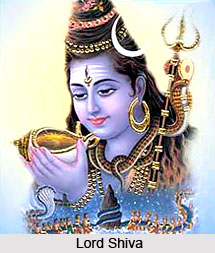 Tiruvacakam, also known as Thiruvasagam, meaning sacred utterance, is a volume of devotional hymns in Tamil. It was composed by Manikkavacakar, who was one of the renowned poets of the Hindu Bhakti restoration, during the 9th century. The author of Tiruvacakam was also a follower of Shaivism. Tiruvacakam, the collection of devotional poems in Tamil literature, consists of almost 51 compositions and forms the 8th volume of the Tirumurai, which is the main sacred religious text of Shaiva Siddhanta in Tamil language.
Tiruvacakam, also known as Thiruvasagam, meaning sacred utterance, is a volume of devotional hymns in Tamil. It was composed by Manikkavacakar, who was one of the renowned poets of the Hindu Bhakti restoration, during the 9th century. The author of Tiruvacakam was also a follower of Shaivism. Tiruvacakam, the collection of devotional poems in Tamil literature, consists of almost 51 compositions and forms the 8th volume of the Tirumurai, which is the main sacred religious text of Shaiva Siddhanta in Tamil language.
The key message of the hymns portrayed in Tiruvacakam is that the physical being is impermanent and worldly leisure and comforts are the chief and primary reason of pain, sorrow and suffering. Every individual should pray to Lord Shiva for his grace in order to escape the physical body and achieve Moksha that is liberation. The soul should always have control over the physical being. The final objective of every individual`s life should be to reach the feet of Lord Shiva and attain his grace.
According to legends, it is said that the poet saint Manikkavacakar was selected as the minister in the court of king Arimarttanar. He was sent to procure 10,000 horses from Arab traders, but he spent the king`s entire money in the construction of a temple of Lord Shiva in the region of Tirupperunturai.
This article is a stub. You may enrich it by adding more information to it. You can send your write-up at content@indianetzone.com













